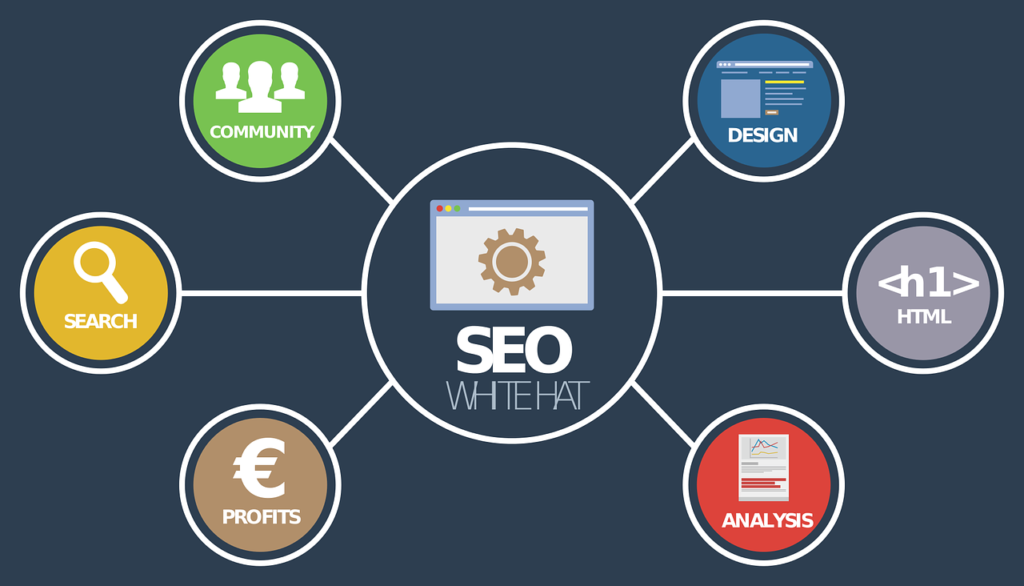If your hospital website is not getting any love from Google, shoddy SEO may be the culprit. A site that is user-friendly and fully optimised can attract search engines and, thus, your intended audience.
We can say that data has been democratized, in a way, as more digital solutions for the industry emerge.
 The answers you get will help you understand what you can do to organically increase your hospital’s online reputation. They will also give you an idea to your future marketing efforts.
Besides this, you should also look into the internet aspect of things, i.e. if the hospital offers a free Wi-Fi service to its patients. Check out what patients look for and search for on the website when they are visiting the hospital or are admitted to one. If some pages are visited more than others, what can you do to make Google increase the ranking of the other pages?
The answers you get will help you understand what you can do to organically increase your hospital’s online reputation. They will also give you an idea to your future marketing efforts.
Besides this, you should also look into the internet aspect of things, i.e. if the hospital offers a free Wi-Fi service to its patients. Check out what patients look for and search for on the website when they are visiting the hospital or are admitted to one. If some pages are visited more than others, what can you do to make Google increase the ranking of the other pages?
 The absolutely first thing you need to do to ensure optimisation on all levels is to make sure that the links to important pages (such as the contact page, blog content, review page, service line pages, etc) are not only visible, but easily accessible as well. The same should be the case for your main navigation interface, and if your hospital is a franchise it should have a separate page for each.
In other words, if your main content is not obvious, Google will ignore it and so will site visitors who stumble on the pages. Besides this, you should also link back to important content from internal pages such as your blogs and create solid pieces like anchor pages that contain case studies or other thought-provoking content that smaller articles can link to. Linking those anchor pages to service pages will create an efficient loop that can generate more traffic and attract search bots frequently.
Besides linking internally, make sure that each page has a unique theme complete with topical and local keywords site visitors may use to search for services. This will go a long way in making your site relevant online. Think of it as giving off a scent or bait to attract users who live close to the hospital’s immediate proximity.
Of course, as important as search terms are, they are easily trumped by the quality and presentation of the content. That’s because Google uses semantic search processes that prioritise great content over keyword inclusion. This is a search engine’s attempt to generate accurate results by understanding:
The absolutely first thing you need to do to ensure optimisation on all levels is to make sure that the links to important pages (such as the contact page, blog content, review page, service line pages, etc) are not only visible, but easily accessible as well. The same should be the case for your main navigation interface, and if your hospital is a franchise it should have a separate page for each.
In other words, if your main content is not obvious, Google will ignore it and so will site visitors who stumble on the pages. Besides this, you should also link back to important content from internal pages such as your blogs and create solid pieces like anchor pages that contain case studies or other thought-provoking content that smaller articles can link to. Linking those anchor pages to service pages will create an efficient loop that can generate more traffic and attract search bots frequently.
Besides linking internally, make sure that each page has a unique theme complete with topical and local keywords site visitors may use to search for services. This will go a long way in making your site relevant online. Think of it as giving off a scent or bait to attract users who live close to the hospital’s immediate proximity.
Of course, as important as search terms are, they are easily trumped by the quality and presentation of the content. That’s because Google uses semantic search processes that prioritise great content over keyword inclusion. This is a search engine’s attempt to generate accurate results by understanding:
What Hospitals Need in Terms of Brand Recognition
To understand where you should come from in terms of optimisation, you need to understand how a typical medical facility measures marketing efforts. Think about what you would measure in terms of marketing at the top of the funnel. There are basically two kinds of brand recognition you need. The first is global brand recognition, i.e. when the hospital has to be promoted to be the best in its category. By using Google Analytics, you would want to add organic and branded search info with the help of appropriate tools to check the number of times the name of the hospital crops up online. A good indication of a solid reputation is if people are talking positively about you. One of the best ways to measure that is by focusing on visitors who visit your hospital’s social media platforms regularly. These visitors are also the ones who visit your website frequently, and they should be targeted accordingly. Besides global brand recognition, hospitals also look for recognition on the domestic or local level which you should prioritise if your healthcare institution just opened its doors. You want and need people who live near it to search for it locally, especially if they live within reasonable driving distance. Measuring the organic search traffic that comes from areas they live in should give you an idea of how popular the facility is. That traffic should increase with time if things are going well. This is where visitor behaviour comes into the picture. Which site pages do they visit the most? Which pages are visited by new visitors the most? Are they able to make enquiries quickly and efficiently enough? The answers you get will help you understand what you can do to organically increase your hospital’s online reputation. They will also give you an idea to your future marketing efforts.
Besides this, you should also look into the internet aspect of things, i.e. if the hospital offers a free Wi-Fi service to its patients. Check out what patients look for and search for on the website when they are visiting the hospital or are admitted to one. If some pages are visited more than others, what can you do to make Google increase the ranking of the other pages?
The answers you get will help you understand what you can do to organically increase your hospital’s online reputation. They will also give you an idea to your future marketing efforts.
Besides this, you should also look into the internet aspect of things, i.e. if the hospital offers a free Wi-Fi service to its patients. Check out what patients look for and search for on the website when they are visiting the hospital or are admitted to one. If some pages are visited more than others, what can you do to make Google increase the ranking of the other pages?
Structuring an Organic Online Presence with SEO
Whether you want local recognition for your hospital or want it to be recognised on a global scale, you need Google’s help to make it happen. This is why you cannot ignore SEO. The absolutely first thing you need to do to ensure optimisation on all levels is to make sure that the links to important pages (such as the contact page, blog content, review page, service line pages, etc) are not only visible, but easily accessible as well. The same should be the case for your main navigation interface, and if your hospital is a franchise it should have a separate page for each.
In other words, if your main content is not obvious, Google will ignore it and so will site visitors who stumble on the pages. Besides this, you should also link back to important content from internal pages such as your blogs and create solid pieces like anchor pages that contain case studies or other thought-provoking content that smaller articles can link to. Linking those anchor pages to service pages will create an efficient loop that can generate more traffic and attract search bots frequently.
Besides linking internally, make sure that each page has a unique theme complete with topical and local keywords site visitors may use to search for services. This will go a long way in making your site relevant online. Think of it as giving off a scent or bait to attract users who live close to the hospital’s immediate proximity.
Of course, as important as search terms are, they are easily trumped by the quality and presentation of the content. That’s because Google uses semantic search processes that prioritise great content over keyword inclusion. This is a search engine’s attempt to generate accurate results by understanding:
The absolutely first thing you need to do to ensure optimisation on all levels is to make sure that the links to important pages (such as the contact page, blog content, review page, service line pages, etc) are not only visible, but easily accessible as well. The same should be the case for your main navigation interface, and if your hospital is a franchise it should have a separate page for each.
In other words, if your main content is not obvious, Google will ignore it and so will site visitors who stumble on the pages. Besides this, you should also link back to important content from internal pages such as your blogs and create solid pieces like anchor pages that contain case studies or other thought-provoking content that smaller articles can link to. Linking those anchor pages to service pages will create an efficient loop that can generate more traffic and attract search bots frequently.
Besides linking internally, make sure that each page has a unique theme complete with topical and local keywords site visitors may use to search for services. This will go a long way in making your site relevant online. Think of it as giving off a scent or bait to attract users who live close to the hospital’s immediate proximity.
Of course, as important as search terms are, they are easily trumped by the quality and presentation of the content. That’s because Google uses semantic search processes that prioritise great content over keyword inclusion. This is a search engine’s attempt to generate accurate results by understanding:
- Search intent
- Context of a query
- Relation between words